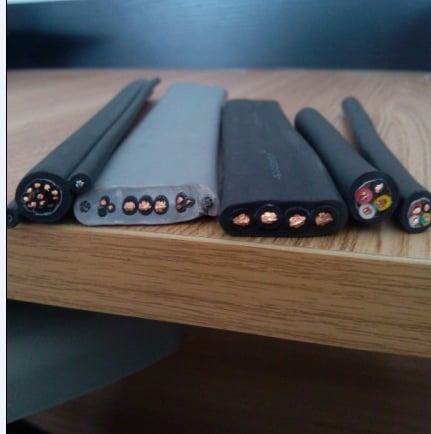Why Flexible Cables Are Essential for Modern Tech
In today’s rapidly evolving technological landscape, the demand for advanced solutions has never been higher. One critical component that plays a pivotal role in this evolution is the flexible cable. From smartphones to medical devices, flexible cables are essential for various applications, ensuring reliability and efficiency.
9/23/20241 min read


Understanding Flexible Cables
Flexible cables are designed to bend and twist without breaking, making them ideal for applications requiring movement or flexibility. These cables are typically made from materials like copper or aluminum, insulated with polymers that allow for increased durability and resilience. Their unique properties make them suitable for dynamic environments, ensuring they can withstand rigorous use.
1. Adaptability to Modern Applications
As technology advances, devices are becoming more compact and versatile. Flexible cables can easily adapt to these changing designs, providing solutions for tight spaces without compromising functionality. This adaptability is crucial in industries such as robotics, consumer electronics, and healthcare, where space is often limited.
2. Enhanced Durability and Longevity
Flexible cables are engineered to endure various stresses, including bending, twisting, and temperature fluctuations. This resilience translates to a longer lifespan compared to traditional rigid cables. By investing in flexible cables, manufacturers can reduce downtime and maintenance costs, ensuring their products operate smoothly.
3. Improved Performance
The design of flexible cables minimizes signal loss, enhancing overall performance. With superior conductivity and reduced resistance, these cables ensure reliable power transmission and data integrity. In applications like telecommunications and data centers, this reliability is crucial for maintaining operational efficiency.
4. Versatility Across Industries
The versatility of flexible cables makes them indispensable in numerous industries. In healthcare, they are used in medical imaging devices, patient monitoring systems, and surgical instruments, where precision and reliability are paramount. In automotive technology, flexible cables are essential for connecting various electronic components, ensuring vehicles operate efficiently.
5. Supporting Innovation
Flexible cables are at the forefront of innovation. As industries embrace automation and smart technologies, the demand for flexible solutions will only increase. These cables enable advancements such as IoT devices, robotics, and wearable technology, allowing for greater connectivity and functionality.
Conclusion
In summary, flexible cables are essential for modern technology, offering adaptability, durability, and superior performance. As we continue to embrace innovation across various sectors, the role of flexible cables will only grow, solidifying their place as a critical component in the technological ecosystem.
